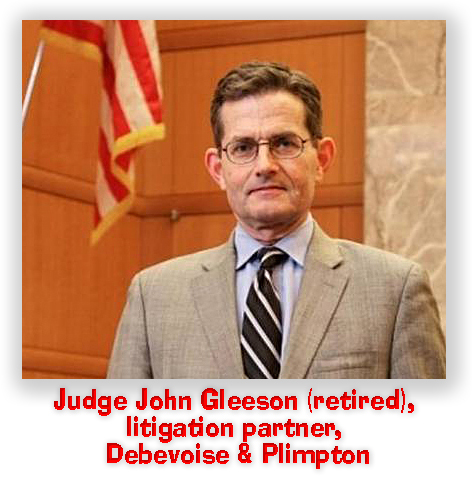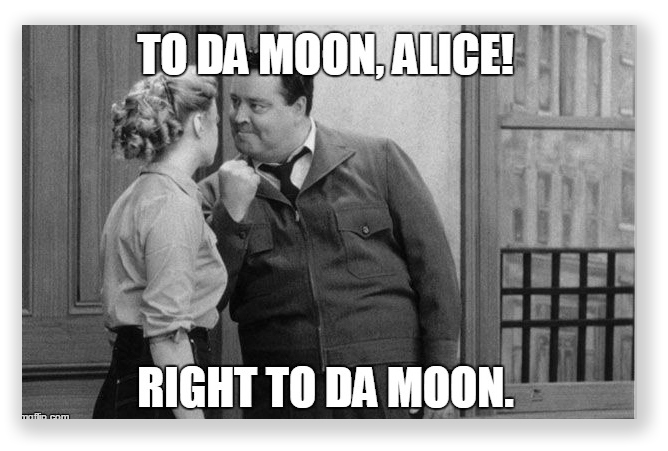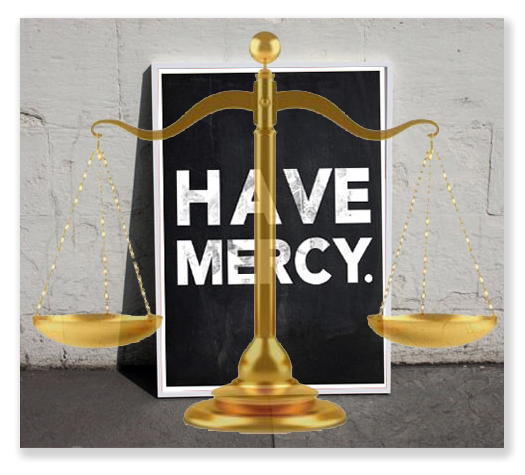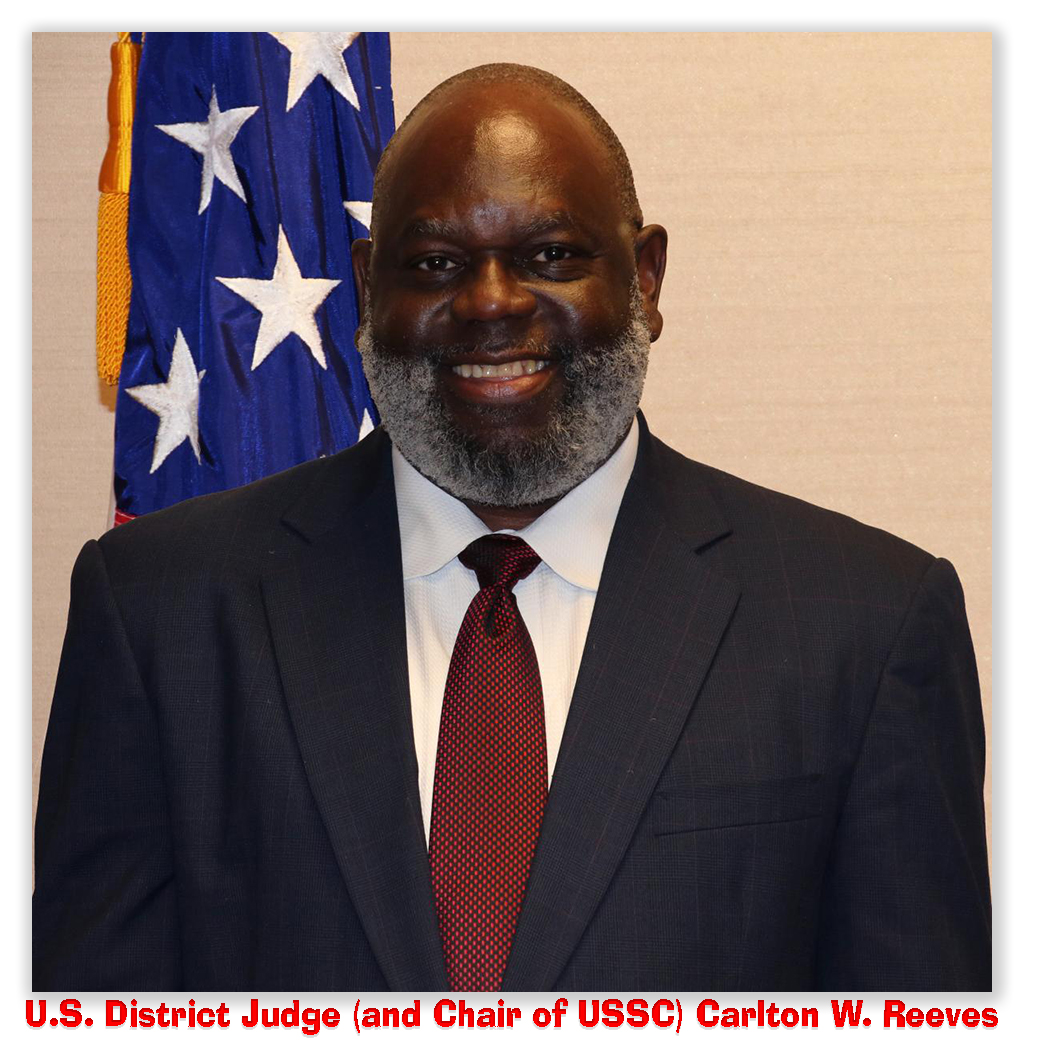We post news and comment on federal criminal justice issues, focused primarily on trial and post-conviction matters, legislative initiatives, and sentencing issues.

‘HOLLOWAY PROJECT’ BATTLES DOJ ON COMPASSIONATE RELEASE
 Longer ago than I care to recall (I was not yet in kindergarten), Jackie Gleason rocketed to fame as one of the creators and star of “The Honeymooners.” Now, about seven decades later, John Gleeson is the star of his own production – no comedy here – leading what may soon bear a dramatic fight to peel away what he calls the injustice of “stacked” mandatory federal prison sentences.
Longer ago than I care to recall (I was not yet in kindergarten), Jackie Gleason rocketed to fame as one of the creators and star of “The Honeymooners.” Now, about seven decades later, John Gleeson is the star of his own production – no comedy here – leading what may soon bear a dramatic fight to peel away what he calls the injustice of “stacked” mandatory federal prison sentences.
I was saddened to see Judge Gleeson give up his lifetime appointment on the federal bench eight years ago for white-shoe Wall Street law firm Debevoise & Plimpton. I could hardly blame him: D&P reportedly started him at well above minimum wage (even California minimum wage). But I selfishly wanted him to stay on as an Eastern District of New York judge for no other reason than his cerebral and compassionate approach to federal sentencing. I figured that Debevoise probably didn’t do a lot of court-appointed federal defense work, and we thus had probably seen the last of Judge Gleeson’s fresh and intelligent approach to sentencing.
What did I know? Eight years later, Judge Gleeson not only sits on the U.S. Sentencing Commission, he’s leading a D&P Initiative that could soon face off with the Department of Justice at the Supreme Court.
 Bloomberg Law reports that Judge Gleeson is the driving force behind “The Holloway Project,” a pro bono program that represents prisoners convicted of multiple 18 USC § 924(c) offenses prior to the passage of the First Step Act. The Project’s goal is to reduce the sentences for clients they believe have been rehabilitated after decades in prison.
Bloomberg Law reports that Judge Gleeson is the driving force behind “The Holloway Project,” a pro bono program that represents prisoners convicted of multiple 18 USC § 924(c) offenses prior to the passage of the First Step Act. The Project’s goal is to reduce the sentences for clients they believe have been rehabilitated after decades in prison.
The project is named for Francois Holloway, who Gleeson himself sentenced to 57 years in a robbery/gun case but later reduced by convincing the U.S. Attorney for EDNY at the time, Loretta Lynch, not to get in the way.
(Parenthetically, the Holloway resentencing spawned a cottage industry of low-brow post-conviction consultants who were hawking “Holloway motions” to prisoners. I heard from a lot of people asking how to file Holloway motions, only to be disappointed when I told them that all they had to do was get the U.S. Attorney and their judge to agree that they should be let out. The universal response: “The prosecutor will never agree to that!” No kidding. It was hardly Judge Gleeson’s fault that bottom-feeders tried to bilk inmate families on the basis of the Judge’s extraordinary effort on Francois’s behalf, but the Holloway case was a true Black Swan.)
 Back to today: As a Sentencing Commission member, Judge Gleeson championed the adoption of USSG § 1B1.13(b)(6), a subsection of the new Guidelines policy statement on sentence reduction motions (commonly if inaccurately called “compassionate release” motions). which defines overly long sentences where the law has changed as an extraordinary and compelling basis for an 18 USC § 3582(c)(1) sentence reduction. Subsection (b)(6) defines when a nonretroactive change in the law that would reduce a current sentence dramatically if it were retroactive could constitute an “extraordinary and compelling” reason for a sentence reduction under 18 USC § 3582(c)(1)(A).
Back to today: As a Sentencing Commission member, Judge Gleeson championed the adoption of USSG § 1B1.13(b)(6), a subsection of the new Guidelines policy statement on sentence reduction motions (commonly if inaccurately called “compassionate release” motions). which defines overly long sentences where the law has changed as an extraordinary and compelling basis for an 18 USC § 3582(c)(1) sentence reduction. Subsection (b)(6) defines when a nonretroactive change in the law that would reduce a current sentence dramatically if it were retroactive could constitute an “extraordinary and compelling” reason for a sentence reduction under 18 USC § 3582(c)(1)(A).
Subsection (b)(6) is important to compassionate release for the same reason all of USSG § 1B1.13(b)(6) is important. Section 3582(c)(1)(A) authorizes a judge to grant a sentence reduction when three conditions are met:
• the reduction must be for “extraordinary and compelling reasons.”
• the reduction must be consistent with applicable Sentencing Commission policy statements.
• the reduction must be “consistent” (whatever that means) with the sentencing factors of 18 USC § 3553(a).
When Congress enacted § 3582 as part of the Sentence Reform Act of 1984, it stipulated that rehabilitation alone was not an extraordinary and compelling reason for a sentence reduction. As for what might be, Congress did not say. Instead, it delegated to the Sentencing Commission the authority and duty to define exactly what situations constitute “extraordinary and compelling reasons” under the statute.
Guideline 1B1.13 is the Commission’s response, listing by my count 17 situations that are extraordinary and compelling. Of focus to Judge Gleeson’s team is USSG § 1B1.13(b)(6), which says
Unusually Long Sentence.—If a defendant received an unusually long sentence and has served at least 10 years of the term of imprisonment, a change in the law (other than an amendment to the Guidelines Manual that has not been made retroactive) may be considered in determining whether the defendant presents an extraordinary and compelling reason, but only where such change would produce a gross disparity between the sentence being served and the sentence likely to be imposed at the time the motion is filed, and after full consideration of the defendant’s individualized circumstances.
Before the new 1B1.13 was adopted last year, some Circuits ruled that judges – who remain free to consider other factors as being “extraordinary and compelling” – could consider changes in the law as a basis for compassionate release. Others flatly refused to approve such bases for compassionate release. When the Circuit split reached the Supreme Court a year ago, the DOJ urged SCOTUS to wait to consider the issue until the USSC adopted its new policy statement as Congress required.
Now that the Commission has adopted new rules, DOJ is arguing in multiple cases that the Commission exceeded its authority by making the change.
“What [DOJ] said very early on is that their nationwide litigation position was that they are objecting to this provision as an overstep from the Sentencing Commission,” said University of Chicago law professor Erica Zunkel.
A February Northern District of Georgia court decision complained the DOJ had “contradicted itself” by arguing that the Commission doesn’t have the power to answer questions it once urged the Commission to answer:
The DOJ has previously argued that courts should refrain from addressing the retroactivity question because “it should be addressed first by the Commission.” The Commission has now addressed the issue. How can the Commission have the authority to address the question but exceed that authority by addressing the question? This argument lacks merit.
The issue is currently before other district and appeals courts. Gleeson and others expect it will reach the Supreme Court.
 When it does, expect Debevoise to be there. Unfortunately, Judge Gleeson himself will not be: as a member of the Sentencing Commission, he will recuse himself from participating in a case arguing the Commission’s authority.
When it does, expect Debevoise to be there. Unfortunately, Judge Gleeson himself will not be: as a member of the Sentencing Commission, he will recuse himself from participating in a case arguing the Commission’s authority.
To the moon, DOJ! To the moon!
Bloomberg Law, Debevoise, DOJ Sentencing Reform Clash Could Hit Supreme Court (March 21, 2024)
United States v. Allen, Case No. 1:09-cr-320, 2024 U.S.Dist. LEXIS 28049 (NDGa, February 12, 2024)
– Thomas L. Root






